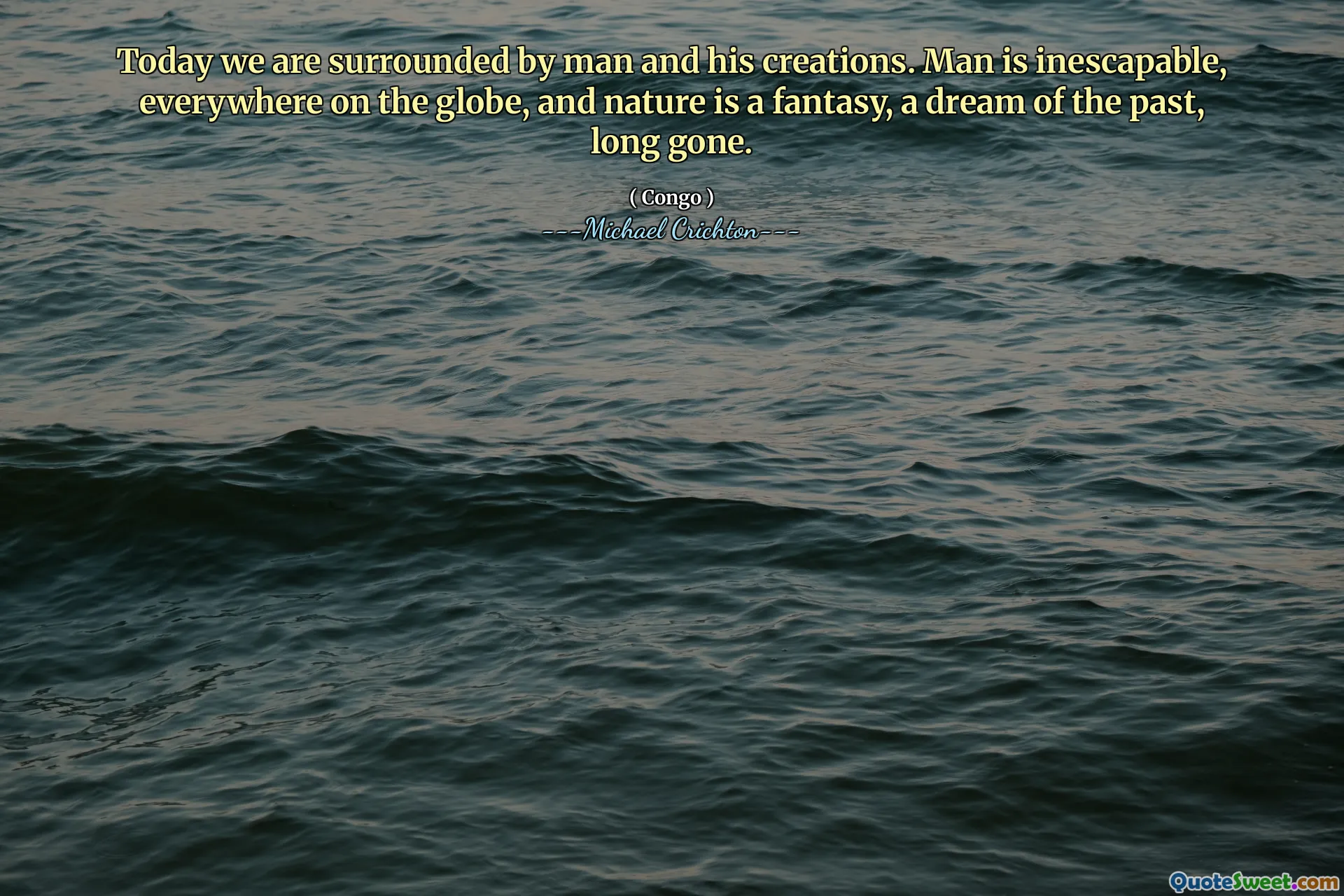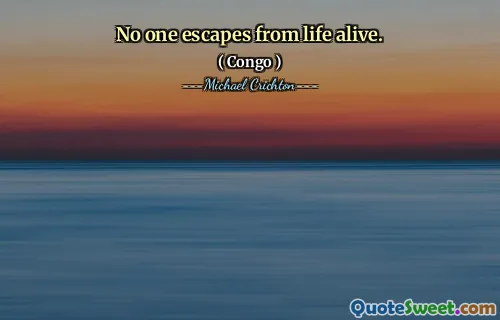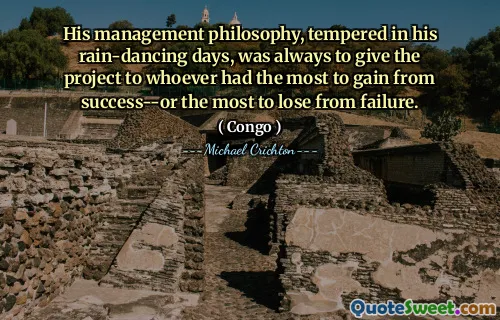
Today we are surrounded by man and his creations. Man is inescapable, everywhere on the globe, and nature is a fantasy, a dream of the past, long gone.
In Michael Crichton's book "Congo," the author emphasizes the omnipresence of humanity and its creations. He highlights how civilization has taken over the planet, indicating that human activities and structures dominate our surroundings. This presence is described as inescapable, suggesting that no matter where one goes, signs of human influence are evident.
Moreover, Crichton contrasts this reality with the idea of nature, which he portrays as a distant memory or imaginative fantasy. He implies that untouched natural landscapes are rapidly vanishing, replaced by the mark of human progress and development. This reflection evokes a sense of nostalgia for the natural world that once was, now overshadowed by modernity.










